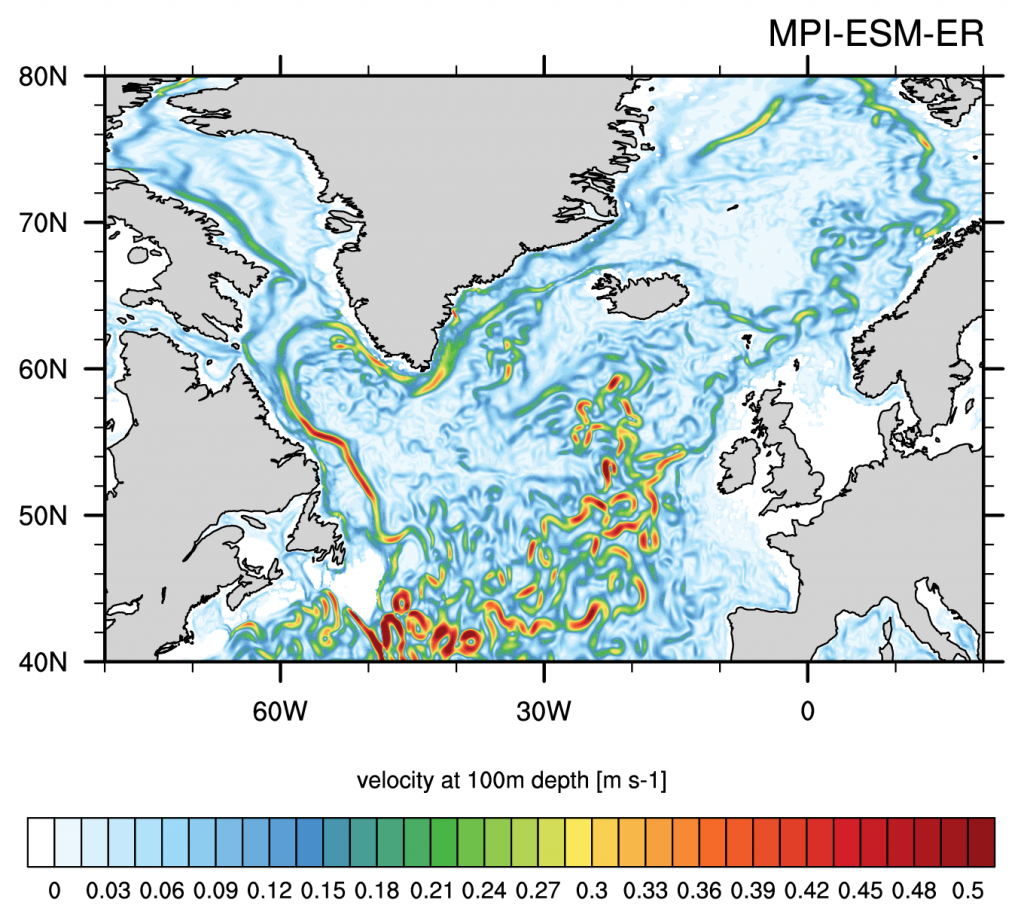Near-term climate predictions bridge the gap between weather forecasts and long-term climate projections for the coming centuries. Our research contributes to the establishment of a near-term prediction system that will provide predictions for the North-Atlantic and Europe, which are relevant for decision making in politics, society and economy. Decadal predictions are based on a precise estimate of the ocean’s state and a realistic representation of its temporal and spatial evolution. This project will investigate the interannual-to-decadal variability and predictability of the North Atlantic circulation and of the surrounding continental regions (Europe, Nordic Seas) using a coupled model system with a very high resolution in the ocean component. Improved representations of oceanic and atmospheric circulation and air-sea interactions’ strength translates into different variability and signal propagation characteristics, and consequently on different levels of predictability.
Research questions and goals
- What is the role of ocean dynamics in near-term predictions and what is the influence of the representation in an eddy-resolving ocean model?
- Investigation of ocean-atmosphere interactions in relation to model resolution in the component models
- Analysis and evaluation of hindcast simulations for the last decades and for forecasts of the next few decades in comparison with observations
Methods
- Earth System Model MPI-ESM-ER featuring an eddy-resolving (0.1°) grid in the ocean component MPIOM
- Hindcasts and forecasts using modern (ARGO-based ocean data for initialisation and evaluation

PIs
Johann Jungclaus, Max-Planck-Institute for Meteorology, Hamburg
Jochem Marotzke, Max-Planck-Institute for Meteorology, Hamburg
Daniela Matei, Max-Planck-Institute for Meteorology, Hamburg
Jin-Song von Storch, Max-Planck-Institute for Meteorology, Hamburg
Team
Oliver Gutjahr, Max-Planck-Institute for Meteorology, Hamburg
Helmuth Haak, Max-Planck-Institute for Meteorology, Hamburg
